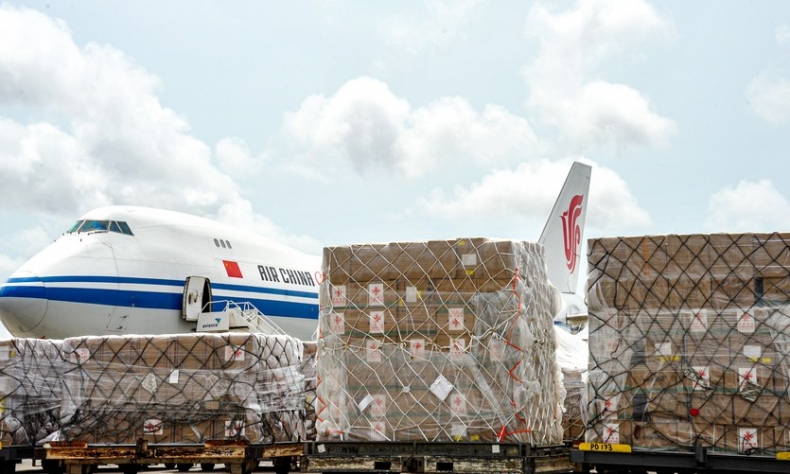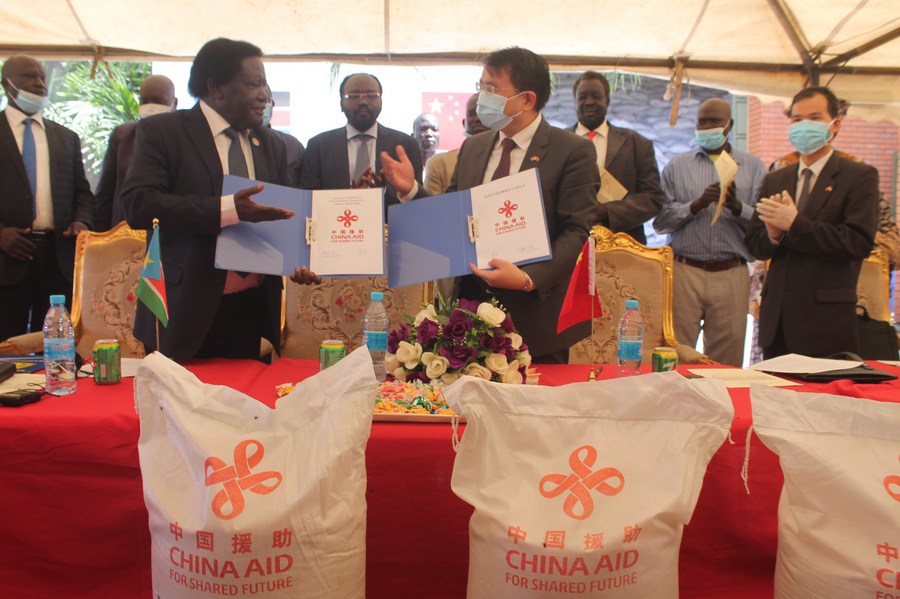Promoting Development Cooperation in a Global Vision

There is no one-size-fits-all path for development. China has always been convinced that all countries, big or small, are equal and should not be coerced by other countries in determining their own development path.
On January 10, the State Council Information Office issued the White Paper on China’s International Development Cooperation in the New Era, which was the third issuance after 2014 and 2018. The white paper introduces China’s views on international development cooperation in the new era, the actions it has taken, and its plans for the future.
The white paper reviews comprehensively the evolution of China’s development assistance models and main achievements throughout different historical stages, demonstrating China’s open and transparent responsibility and accountability.
At its core, the white paper highlights China’s proposals and initiatives for common development raised in recent years, such as the Belt and Road Initiative and the vision of a global community of shared future. The initiative and vision have resonated with many countries because they are proposed to solve global concerns, including sustainable development, endogenous growth of developing countries and humanitarian challenges.
Taking the proposal on the global community of shared future at the 18th National Congress as the starting point the white paper explains China’s work in the field of international development cooperation during this period. The change from development assistance to development cooperation in the white paper reflects the positive adjustment of China’s ideas and actions for promoting common development in a global vision.
The white paper points out that China’s foreign aid conforms to the requirements of the times, transforms and upgrades to international development cooperation so as to enter a new era. China’s international development cooperation refers to China’s bilateral and multilateral cooperation in socio-economic development, including humanitarian assistance under the framework of South-South cooperation.
The idea of building a global community of shared future meets the basic needs of global socio-economic development and is consistent with the requirements of the development of technology and international economic and trade activities.
As a country that has achieved great development through continuous learning, optimizing the market environment and pooling resource elements in order to rapidly promoting industrialization and urbanization, China firmly believes that development is the top priority, always pays attention to shouldering international responsibilities and seeks mutual benefit and win-win results with numerous developing countries.

There is no one-size-fits-all path for development. China has always been convinced that all countries, big or small, are equal and should not be coerced by other countries in determining their own development path. The “right to choose” is significant for all countries in terms of development. Cooperation-based development is more vital and durable than the traditional “center-periphery” model.
However, restricted by their own basic conditions many countries have inappropriate industrial structures, lack funding to support their development will and cannot get enough dividends in economic globalization. The proposal of “the Belt and Road Initiative” has greatly enhanced the ability and expanded the scope of international cooperation. In the new era China’s international development cooperation takes environmental improvement and capacity building as channels so as to play an important role as the “helping hand”.
Although different countries have different demands for development, they can consult with each other in the development cooperation with China and find a suitable cooperation mode together. Under the guidance of the concept of the global community of shared future China has deepened policy communication with all parties, accelerated facility connectivity, smoothened trade flow, promoted financial integration, enhanced people-to-people communication and played an active and important role in jointly finding appropriate ways to carry out cooperation.
The white paper shows that during 2013-2018 China’s foreign aid funds continued to scale up while various funding methods had respective focuses in order to make up for shortcomings in development and improve socio-economic benefits, covering 122 countries and 20 international and regional multilateral organizations.
The newly acceding South-South Cooperation Assistance Fund has become an important vehicle for cooperation between China and 14 international organizations, including the United Nations Development Programme, the World Health Organization and the International Red Cross. It not only exerts the leverage effect of funds, but also plays its part in a wider scope through the resource network of international organizations.
As at the end of 2019 China has implemented 82 aid projects in cooperation of international organizations under the framework of South-South cooperation, among which funds for agricultural development and food security accounted for 37.89 percent and funds for poverty alleviation accounted for 37.71 percent, providing important support for solving the fundamental livelihood problems in developing countries.
The development cooperation between China and other countries has effectively promoted the implementation of the United Nations 2030 Agenda for Sustainable Development and assisted with the elimination of poverty, improvement of food security and medical conditions, guarantee of quality education, promotion of gender equality, support to ecological and environmental protection so as to promote sustainable and innovative economic growth.
There is still much to be done for international development cooperation. Taking building a global community of shared future as the starting point is an important choice for us to respond to global challenges. The global governance structure is undergoing profound changes. The economic and trade order and rules are continuously adjusted.
The distortion of trade protectionism on the market has seriously affected international economic and trade activities. The huge and persistent challenges to global health put forward urgent and practical requirements for the building of a global community of shared hygiene and health. Unsustainable development may result to the earth no longer suitable for human habitation in the future.
International development cooperation needs more members to participate more actively in building the global community of shared future, expand the development scope and improve the common well-being of humanity through cooperation so as to benefit from development while investing more resources through collaborative ideas and actions and eventually forming a more effective mechanism.
The author is research fellow at Chinese Academy of International Trade and Economic Cooperation.
Translated by Chen Ying
 Facebook
Facebook
 Twitter
Twitter
 Linkedin
Linkedin
 Google +
Google +










